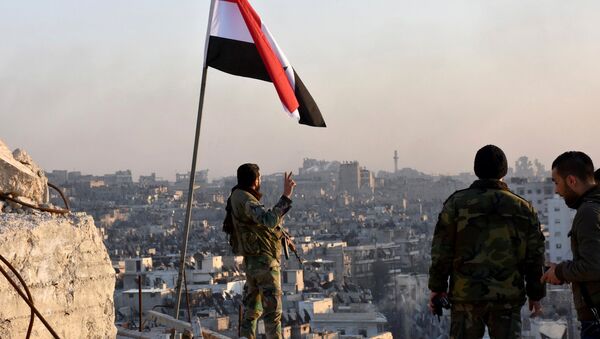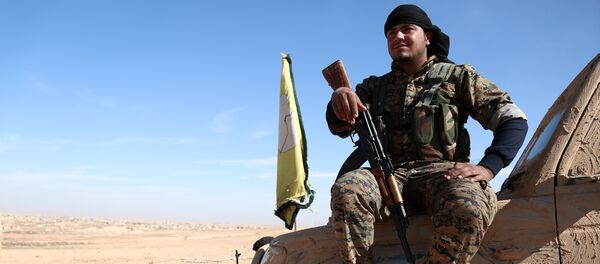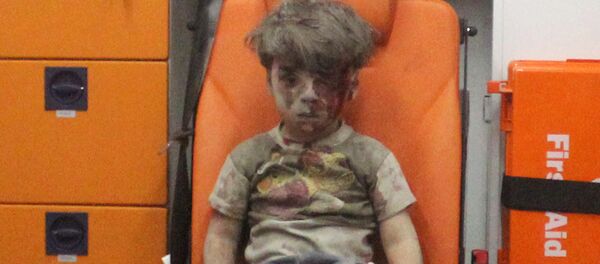In December 2016, the Syrian government, backed by Russia, finally liberated the city from Jabhat al-Nusra and other allied militant Islamists after several months of fighting.
In addition to military support for government troops, Russia provided humanitarian support for those trapped in Aleppo. Before the liberation, Russia was providing the people of Aleppo with 35 tons of food per day and hospital supplies capable of treating 450 people per day.
Russia also cooperated with Turkey in the evacuation of tens of thousands of civilians and militants from Eastern Aleppo, before Syrian troops entered the city and finally gained full control on December 22.
Despite that, the liberation of Aleppo was greeted with dismay by Western governments and media who had supported the Islamist rebels, labeling them "moderate" armed opposition and glossing over their war crimes and imposition of Sharia law in the city and other areas they controlled.
The book is called "Aleppo: War and Diplomacy," and will soon be published in English. In it, Khodynskaya-Golenischeva recounts the breakdown of the ceasefire agreement negotiated between the US and Russia, and the beginning of negotiations between Russia, Turkey and Iran on the establishment of safe zones.
"It was the Aleppo issue that in many ways sparked the search for better negotiation formats to resolve the Syria conflict. It was Aleppo that revealed the monstrous hypocrisy and cynicism of the Western press, which hushed up the numerous crimes of radicals in the city, including the shooting of civilians attempting to flee via the humanitarian corridors created by Russia and Syria. Unfortunately, some UN officials were also involved in this unscrupulous campaign," Khodynskaya-Golenischeva told RIA Novosti.
"I decided to write this book because it is impossible to ignore the truth about the dishonest games going on around Aleppo, what sophisticated techniques were used to obstruct Russia's efforts to support the Syrian army in its fight against terrorists in the city, to slander and denigrate our efforts to provide humanitarian aid to ordinary Syrians," Khodynskaya-Golenischeva told RIA Novosti.
"This must not be forgotten, in order to prevent it from repeating in the future. The Syrian conflict is not over yet, and certainly some will be tempted to repeat the unscrupulous techniques developed in Aleppo in other similar situations. We need to be prepared for it."
Russian experts from the International Mine Action Center of the Russian Armed Forces stayed on after the liberation of Aleppo to help de-mine formerly rebel-held areas and train Syrian sappers.
In April, Russia's General Staff said that more than 7,000 families had been able to return to their homes in Aleppo after the demining of residential areas.
The zones are located in the Idlib Governorate and parts of neighboring Latakia, Aleppo and Hama provinces; in the northern part of Homs province; in the Damascus neighborhood of Eastern Ghouta, and in parts of southern Deraa and Quneitra provinces bordering Jordan.
On June 9, The Russian General Staff announced that the safe zones have succeeded in de-escalating the situation in Syria.
"De facto the civil war in Syria has stopped," the chief of the Russian General Staff's Main Operational Directorate Col. Gen. Sergei Rudskoy said.
"Humanitarian access to inhabited areas located within the de-escalation zones has been restored. In the last month alone, international organizations have sent 14 humanitarian convoys to these areas, which has significantly improved the life of their residents," Rudskoy said.
At the same time, the Russian Defense Ministry's center for Syrian reconciliation has made 169 aid deliveries, bringing a total of 17 metric tons of food, and given medical aid to over 10,000 Syrians, he added.






